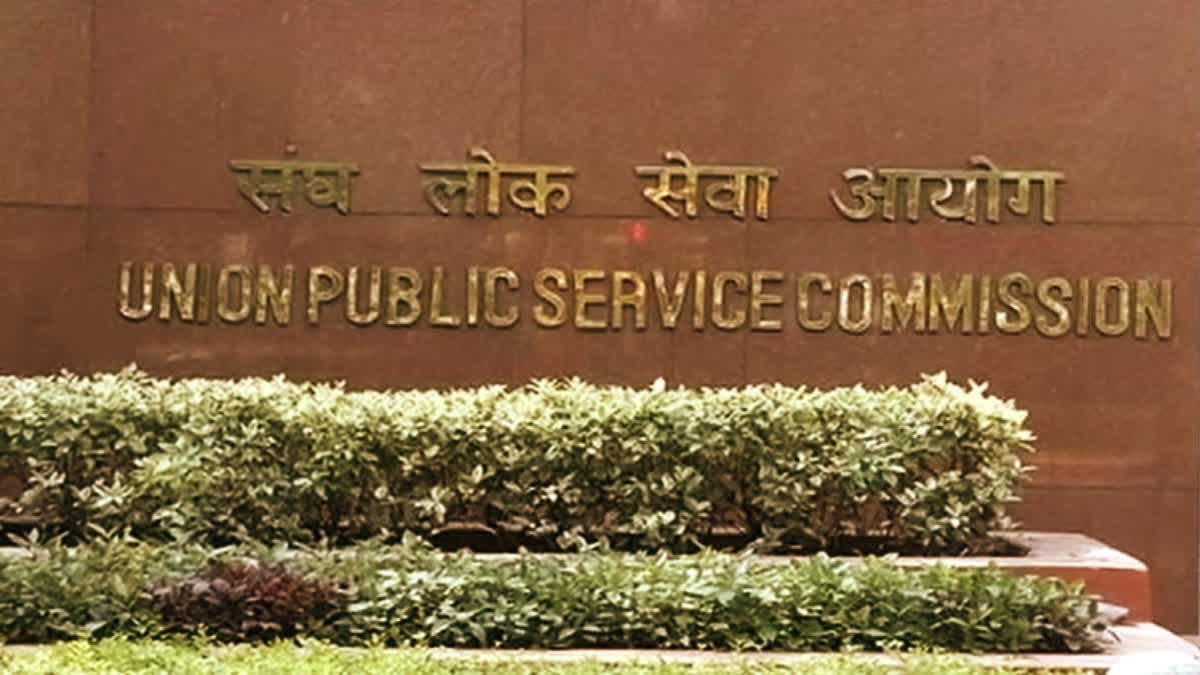New Delhi:Civil Services Day is celebrated on April 21. April 21 was chosen as Civil Services Day because it is on this day in 1947 that the first Home Minister of India, Sardar Vallabhbhai Patel, addressed the probationers of Administrative Services Officers at Metcalf House in Delhi.
Civil servants play a significant role in administering and running the mechanism of the country collectively and dedicatedly to serve the Indian people.
About Civil Servants
Civil servants constitute the backbone of the administration — they are the ones who ensure the implementation of government policies. They are also responsible for creating ways for smooth functioning of programmes and ensuring the passage of benefits to the people.
Historical Perspective: Civil Service word dates back to the British time when British East India Company civilian staff were involved in administrative jobs and were known as 'Public Servants'. Its foundation has been laid by Warren Hastings and later more reforms were done by Charles Cornwallis and so he was known as the 'Father of Civil Services in India'.
Sardar Patel referred to civil servants as the 'steel frame of India'. The first such function was held in Vigyan Bhawan, New Delhi on 21 April 2006. And from then April 21 has been celebrated as National Civil Service Day.
To show appreciation for the civil servants, the Prime Minister of India gives out a medal, scroll, and a cash amount of Rs 1,00,000 to the individuals. If a group is involved, the total amount is Rs 500,000 with a maximum of Rs 100,000 per person. For an organisation, the cash limit is Rs 500,000.
The civil services in India consists of the Indian Administrative Service (IAS), Indian Police Service (IPS), Indian Foreign Service (IFS), and a comprehensive list of All India Services and Central Services Group A and Group B.
How to Become a Civil Servant in India?
One of the highly chosen jobs in the field of government sector. As per leading job portals, the government sector witnesses around millions of students every year. Out of which only 30 per cent to 40 per cent of the students fulfil their dream to become a civil servant in India. TheUnion Public Service Commission, every year, takes up the task of selecting a few among lakhs of candidates to take up the position in various departments of the Government of India.
The applicant must have a graduate degree to appear for the civil service examination. The students who have completed bachelor's degrees in any stream can apply. The minimum age for appearing in any civil service exam is 21 years. The general category applicants can appear 6 times up to 32 years.
The age limit for the OBC category is 21 to 35 years. These group candidates can appear nine times. The age limit for SC and ST categories is 21 to 37 years. There is no limit to the number of attempts. Physically disabled candidates can appear between 21 and 42 years of age.
In civil service exams there are 25 subjects including physics, political science, botany, zoology, psychology, botany, electrical engineering, geography, history, and law. UPSC candidates need to clear two exams: Prelims and Mains. In the Prelims, there are two papers in which the first one is subject-related while the other is CSAT-based. People giving the Prelims need to get at least 33 percent marks to advance to the next round.
Those who pass the Prelims will sit for the Mains exam which has nine papers. Among these, two are for qualifying and the rest for merit. There are also four more papers on General Studies, and an optional paper too. People who clear the Mains then have just one last hurdle to overcome.
Candidates who crack the Mains exam are then called for the interview round. They have to fill out the Detail Application Form (DAF), and must go through a personality test during the interview. Following the interview, the UPSC releases an all-India ranking list. The average salary of a civil servant, after the completion of the mentioned courses varies from INR 4,00,000 to INR 8,00,000 per annum.
How to prepare for a civil service exam?
Civil service exams for state and local positions are offered through your state government's site. There are several test prep tools available in books and online. Some jobs may require a written assessment and additional job knowledge testing.
Typically, a score of 70 per cent is considered passing but it varies by agency. Your rank determines if you will move forward in the hiring process. After receiving your score, a hiring manager will contact you from the department you applied to.
Exams test the following competencies:
- Reading comprehension
- Problem-solving skills
- Reasoning and critical-thinking skills
- Ability to follow basic math functions
Prime Minister’s Awards for Excellence in Public Administration
Government of India has instituted a scheme in 2006 namely, 'The Prime Minister’s Awards for Excellence in Public Administration' - to acknowledge, recognise and reward the extraordinary and innovative work done by districts/ organisations of the Central and state Governments.
The role of civil servants is crucial as they are responsible for managing the resources given to them by the government, making use of them efficiently and effectively, and ensuring that it reaches people at the grassroots level. The Centre commemorates ‘Civil Services Day to celebrate the exemplary work done by civil servants, and as an opportunity for them to recommit themselves to the cause of citizens.
On this day, the country's Prime Minister usually presents awards of excellence to honour the nation's civil servants for their significant contributions and to motivate them to work more efficiently for the public.
